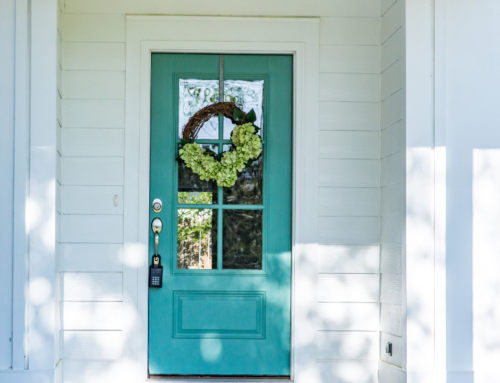
It’s easy to get caught up in the excitement of making your goal of homeownership a reality. After all, homeownership can provide financial benefits, like protection against rising rent and growing wealth through home value appreciation. However, homeownership isn’t just a financial decision. It’s also a personal, lifestyle decision. Answering these questions can help you put things in perspective before you make a move.
What’s Your 5 to 10-Year Plan?
A lot can change in an individual’s personal life over the years. That’s why considering your 5 to 10-year plan is an important part of planning for homeownership. Here are just a few ways your your long-term goals might impact your home buying decisions.
Are you planning to start a family in the next few years? If so, you may want a home with room to grow. Or your location may change from a busy metropolis to a suburb with highly rated schools.
How long do you plan on living in the home? Is this home the stepping stone before your dream home? Or is this the house you want to retire in? Knowing the answer to these questions can help you put things in perspective when evaluating your needs and wants or “must haves” in a home.
Do you anticipate relocating for work in the future? If your job is location dependent or has the potential to change on a whim, it may not make sense to invest in a fixer-upper. If you move too soon, and don’t have time to complete renovations, you may not recoup your investment.
Have you Identified Any Additional Costs?
Will your utility bill change? If you’re upsizing to a house with more square footage, the cost of heating, cooling and electricity may increase.
Have you researched property tax in your desired location? Taxes can vary from city to city. Researching can help prevent any surprises when winter and summer taxes are due. This property tax estimator can help.
Are you considering renovations in your new home? Make sure to budget for the total cost of the upgrades and consider how much time it will take to complete.
What Can you Afford (Comfortably)?
Before taking the plunge on a new house, consider what you can comfortably afford.
Are You Leaving Room for Savings and Unexpected Events?
Congratulations! You’ve snagged your dream property. The only problem is you can’t contribute to savings. You’re living on a prayer, dreading the day you have pull the plug on that older appliance and buy a new one. Stressed and strapped for cash is not a lifestyle you want to be living – even if you’re living it in the most beautiful home imaginable.
Searching for a new home is exciting. Just be careful to not to let the excitement rush decisions or cause you to be overoptimistic with your budget. You will be happier in the long run buying a less expensive home and living comfortably, as opposed to buying a home that takes up an exorbitant percent of your monthly budget.
What Extras are Important to You?
Your dream home should not keep you from fulfilling other dreams. For example, if traveling is a high priority for you, draw up a budget that includes the cost of living you can afford and your average vacation cost.
Perhaps sending your child to a specific college is a high priority which requires setting extra money aside. Or maybe you want to go back to school. It might be that having a home to raise children and grandchildren is your top priority and you’re willing to make sacrifices elsewhere. The key is to identify your priorities and keep them in mind as you search for homes.
About Julie Krumholz from Superior National Bank
Julie Krumholz has been helping homebuyers for over 30 years and has several loan programs available for various incomes and financial situations. She’s experienced nearly every facet of the mortgage industry, from processing, closing, loan origination, underwriting, QC auditing, and even co-owning a mortgage brokerage firm. Julie uses her wealth of experience to match homebuyers with the best mortgage program for their needs and helps them navigate the process for a smooth transition to homeownership.





